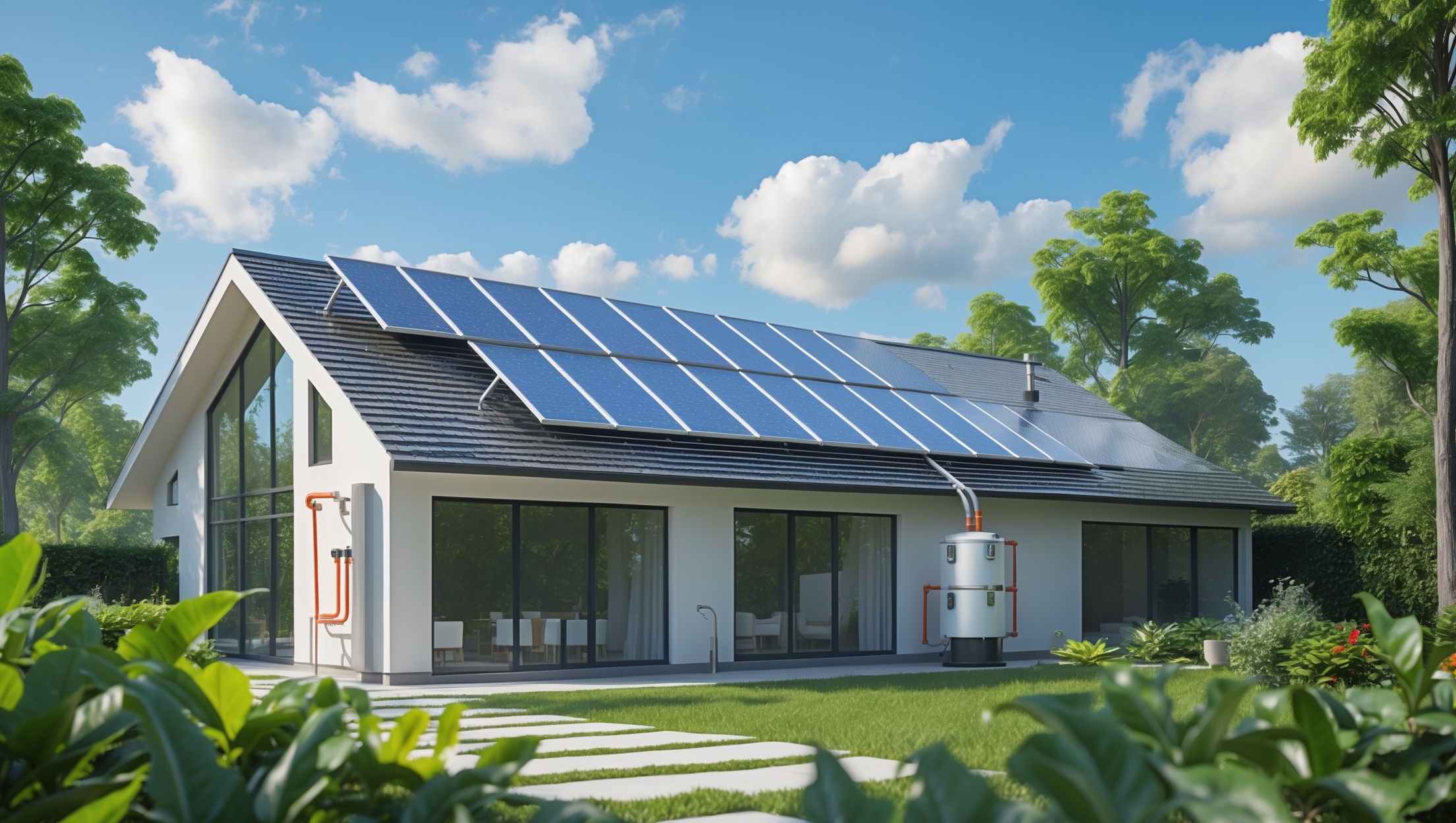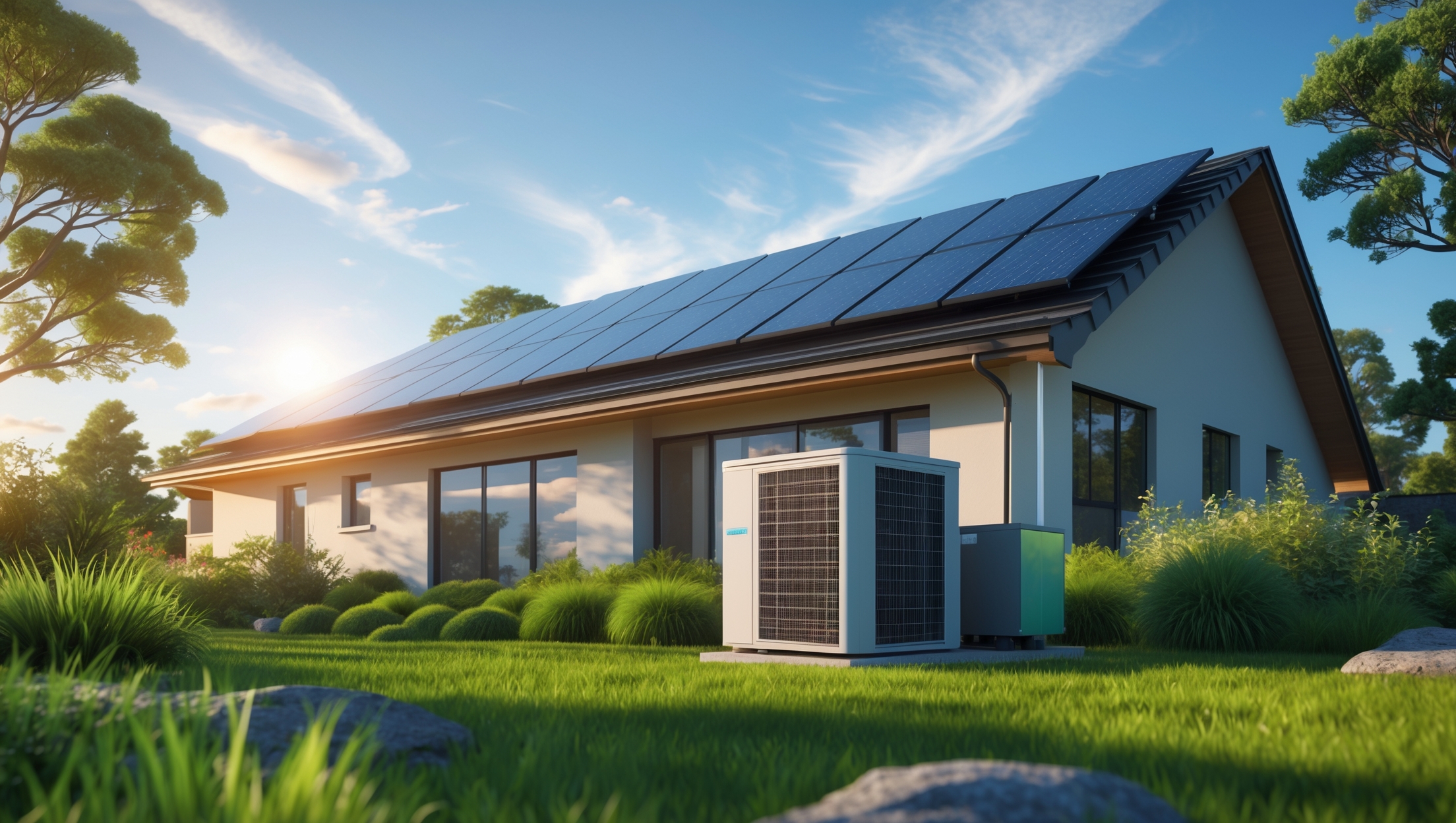Introduction
If you’ve invested in a solar water heating system for your home, you’re already taking a significant step toward sustainable living and energy independence. These systems offer reliable hot water while sharply reducing utility bills and carbon emissions. But, like any major home upgrade, a solar water heating system also represents a substantial financial investment—one that deserves proper protection. Unfortunately, many homeowners overlook the nuances of insurance for green technologies. Standard home insurance policies may not fully cover solar installations, and unique risks such as weather damage, leaks, or system failures could leave you with unexpected expenses. In this comprehensive guide, we’ll unpack all you need to know about insuring residential solar water heating systems: understanding coverage gaps, evaluating risks, navigating policy options, and maximizing your investment’s protection for years to come.
Understanding Solar Water Heating Systems and Their Risks
Key Components of a Home Solar Water Heating System
- Solar Collectors: Panels that absorb solar energy to heat water.
- Storage Tank: Stores the heated water for household use.
- Pumps and Controllers: Circulate fluid and manage system operation.
- Pipes and Insulation: Transport hot water and prevent heat loss.
- Backup Heater: Provides hot water when solar gain is insufficient.
Typical Risks Associated with Solar Water Heating Systems
- Weather-Related Damage: Hail, wind, snow, or freezing temperatures can damage collectors or pipes.
- Leaks and Water Damage: Faulty connections or burst pipes can cause significant water damage to property.
- System Malfunction: Failures in pumps, controllers, or valves may lead to loss of hot water supply or equipment damage.
- Theft or Vandalism: Exposed rooftop panels or external tanks may be targeted.
- Fire: Electrical faults or overheating may present fire hazards, albeit rarely.
- Installation Errors: Poorly installed systems may fail prematurely or void manufacturer warranties.
Does Your Home Insurance Cover Solar Water Heating Systems?
Standard Homeowners Insurance: What’s Typically Included?
Most standard homeowners insurance policies provide coverage for permanent fixtures and systems attached to the dwelling, including solar water heating systems. However, coverage details can vary widely. Some policies automatically include solar systems under the ‘dwelling’ or ‘other structures’ section, while others may require you to specifically list the equipment or add endorsements.
Common Gaps in Standard Policies
- Insufficient Coverage Limits: Your policy’s coverage limit may not reflect the added value of the solar system, leaving you underinsured after a loss.
- Exclusions: Damage from flooding, earthquakes, or gradual wear and tear is often excluded.
- Off-Grid or Standalone Systems: Systems not permanently affixed to the home may not be covered.
- Professional Installation Requirement: DIY installations may be excluded from coverage or scrutinized during claims.
How to Confirm Your Coverage
- Request a copy of your current policy and review the ‘dwelling’ and ‘personal property’ sections.
- Ask your insurer to clarify whether solar water heating systems are covered and under what conditions.
- Request written confirmation or an updated policy endorsement if coverage is unclear.
Types of Insurance Coverage for Solar Water Heating Systems
Endorsements and Riders
An endorsement or rider is a policy add-on that specifically insures your solar water heating system for its full value. This can be especially important if your system is a significant capital investment or if you live in an area prone to severe weather.
Equipment Breakdown Coverage
Many insurers offer equipment breakdown insurance as an optional add-on. This can cover the cost of repairing or replacing components like pumps, controllers, or tanks due to electrical or mechanical failure, which standard policies often exclude.
Specialty Green Energy Policies
Some insurers now offer ‘green upgrade’ or ‘renewable energy’ policies, designed specifically for homeowners with solar or other renewable energy systems. These may provide enhanced coverage for:
- Solar collector repairs and replacement
- System upgrades after a covered loss (e.g., improved efficiency components)
- Loss of use or extra expenses if your hot water supply is interrupted
Liability Coverage
If your solar water heating system causes third-party injury or damage—for example, a falling panel injures a passerby, or a leak damages a neighbor’s property—liability coverage can protect you from legal and financial consequences. Confirm that your policy’s liability section extends to your solar installation.
Assessing and Documenting Your System for Insurance
Determining the System’s Value
- Keep copies of all purchase receipts, installation invoices, and manufacturer warranties.
- Document the make, model, and serial numbers of all major components.
- Photograph the installation from multiple angles, including close-ups of panels, tanks, and control systems.
- Include the cost of related electrical/plumbing work and structural supports in your valuation.
Reassessing Coverage After Upgrades
Any system upgrades—such as adding new collectors, advanced controllers, or expanding storage capacity—should be reported to your insurer. Update your policy’s coverage limit to reflect the increased value and avoid being underinsured.
Proactive Risk Mitigation for Lower Premiums
Professional Installation and Certification
- Use certified installers following local codes and manufacturer requirements.
- Request documentation of proper permitting and code compliance.
- Keep a record of all inspections and sign-offs.
Insurers may offer discounts for professionally installed systems, reducing your premium and boosting claim approval rates.
Routine Maintenance and Inspection
- Schedule annual system inspections, preferably before winter.
- Flush and descale tanks and collectors as recommended.
- Check for leaks, corrosion, or insulation damage regularly.
- Maintain a maintenance logbook for insurance and warranty purposes.
Physical Protection Measures
- Install hail guards or protective glazing on rooftop panels in storm-prone areas.
- Insulate exposed pipes and valves to prevent freezing damage.
- Secure all outdoor equipment with theft-resistant fasteners.
- Install surge protectors to safeguard electronic controllers.
Making an Insurance Claim: Step-by-Step Process
1. Immediate Actions After Damage or Loss
- Take photos or videos of the damage before making repairs.
- Prevent further loss (e.g., shut off water supply, cover damaged areas).
2. Notify Your Insurer Promptly
File your claim as soon as possible, providing all relevant documentation: receipts, installation certificates, photos, and maintenance records.
3. Work with Adjusters
- Accompany the adjuster during the site inspection if possible.
- Clarify the system’s function and value to facilitate a fair assessment.
4. Keep Records
- Document all communications with your insurer.
- Retain copies of repair estimates and invoices.
5. Appeal If Necessary
If your claim is denied or undervalued, request a detailed explanation and consider obtaining an independent assessment or consulting an insurance advocate.
Special Considerations: Off-Grid, DIY, and Community Systems
Off-Grid Systems
Fully off-grid solar water heating systems may not be covered under standard home insurance, as they’re sometimes classified as ‘personal property’ or ‘outbuildings.’ Discuss your setup in detail with your insurer to ensure appropriate coverage.
DIY Installations
Self-installed systems often present coverage challenges. Many insurers require professional installation and municipal inspection for eligibility. If you install the system yourself, retain every piece of documentation—permits, inspection records, manuals, and photos—demonstrating safe and code-compliant work.
Community or Shared Systems
Some neighborhoods or multi-family buildings share solar water heating infrastructure. In these cases, coverage responsibilities may fall on a homeowners’ association or building management. Review association bylaws and obtain proof of adequate insurance for the shared system.
Frequently Asked Questions
- Does insurance cover gradual wear and tear?
No. Most policies exclude gradual deterioration, corrosion, or maintenance-related failures. Only sudden, accidental damage is typically covered. - What about hail or wind damage?
These perils are often covered, but confirm that your policy specifically lists ‘windstorm’ and ‘hail’ as included hazards. - If I sell my home, does the system remain insured?
Insurance coverage ends when you transfer ownership. The new owner must update or obtain their own policy. - What documentation should I keep?
Receipts, installation and inspection certificates, photos, maintenance logs, and warranty details are all essential.
Conclusion
Protecting your investment in a residential solar water heating system is about more than just safeguarding equipment—it’s about ensuring the long-term resilience and sustainability of your home. As green technologies become more mainstream, insurance policies are evolving, but coverage gaps and ambiguities remain. Don’t assume your standard homeowners policy will automatically cover every aspect of your solar water heater. Take a proactive approach: evaluate your risks, document your system thoroughly, consult with your insurer, and consider specialized endorsements or equipment breakdown coverage for full protection. Proper maintenance and risk mitigation not only keep your system running efficiently but may also lower your insurance premiums and reduce the likelihood of denied claims. By understanding your coverage options and responsibilities, you can enjoy the many benefits of solar hot water—energy savings, environmental impact, and comfort—without worrying about unexpected financial setbacks. With the right insurance and a well-maintained system, your sustainable investment can serve you reliably for decades to come.





Could you clarify if most standard homeowners insurance policies require homeowners to specifically list their solar water heating system as an addition, or is it usually included automatically under dwelling coverage?
Most standard homeowners insurance policies generally include solar water heating systems under dwelling coverage if the system is permanently installed as part of the home. However, some insurers may require you to notify them or specifically list major additions or upgrades to ensure full coverage. It’s always a good idea to check with your insurance provider to confirm how your system is covered and whether any documentation or updates to your policy are necessary.
For someone whose main concern is accidental water damage from leaks or burst pipes, are there specific insurance policy features or endorsements you recommend looking into? I want to make sure any water issues won’t become a costly problem later.
If water damage from leaks or burst pipes is your top concern, look for a homeowners policy that includes comprehensive water damage coverage. Ask your insurer about endorsements like ‘water backup and sump overflow’ or ‘mechanical breakdown’ for extra protection. It’s also wise to confirm whether your policy covers gradual leaks versus sudden incidents, as some policies only cover unexpected events. Reviewing the exclusions and limits specific to water-related claims can help you avoid surprises later.
Could you clarify what steps a homeowner should take immediately after installing a solar water heating system to make sure they have the right insurance coverage in place? Is there a checklist or timeline to follow for notifying insurers?
After installing your solar water heating system, contact your home insurance provider as soon as possible to report the new addition. Ask if your current policy covers the system or if you need to adjust your coverage. Provide documentation like installation receipts and warranties. It’s wise to do this within a week of installation. Keep a record of all communications and confirmations from your insurer for reference.